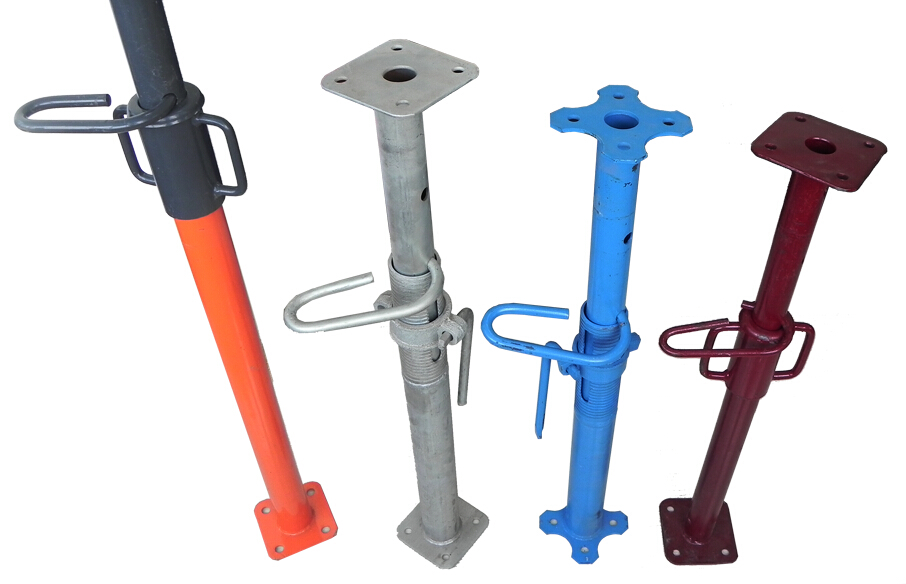Oct . 14, 2024 13:19 Back to list
Suppliers of Circular Formwork Solutions for Construction Projects
The Rise of Circular Formwork Suppliers in Sustainable Construction
In recent years, the construction industry has been undergoing a significant transformation, driven by the urgent need for sustainable practices. One of the most innovative developments in this area is the emergence of circular formwork suppliers. Circular formwork refers to a construction methodology and material that allows for the efficient reuse and recycling of formwork systems, minimizing waste and promoting sustainability. This article explores the growing demand for circular formwork, its benefits, and the leading suppliers in the market.
What is Circular Formwork?
Circular formwork is designed with the intent of being reused multiple times throughout its lifecycle. Traditional formwork, typically made from wood or metal, is often discarded after a single use, contributing to significant waste in construction projects. In contrast, circular formwork is manufactured from materials that can withstand multiple pours of concrete, such as engineered wood, steel, or innovative composites. These materials not only enhance durability but also lead to cost savings over time through reduced material costs and labor expenses.
The Benefits of Circular Formwork
1. Environmental Sustainability One of the most compelling advantages of circular formwork is its contribution to environmental sustainability. By promoting the reuse and recycling of materials, it significantly reduces the amount of waste generated at construction sites. This is vital in an industry known for its large carbon footprint. Moreover, many circular formwork suppliers offer systems made from sustainably sourced materials, further reducing environmental impact.
2. Economic Advantages In addition to environmental benefits, circular formwork can lead to substantial economic savings. While the initial investment may be higher compared to traditional formwork, the longevity and reusability of circular systems mean that over time, they can result in lower overall costs. This is especially important for construction companies looking to optimize their budgets while adhering to sustainability goals.
3. Enhanced Project Efficiency Circular formwork systems are typically designed for easy assembly and disassembly, which can significantly reduce the time taken for installation. This efficiency allows construction teams to meet project deadlines more readily and can even enhance safety on site by minimizing the number of manual tasks required.
4. Versatility Circular formwork can be customized for a variety of applications, making it suitable for different types of construction projects, including residential, commercial, and infrastructure developments. The flexibility of these systems means they can accommodate various architectural designs, ranging from complex curves to straight walls, all while maintaining structural integrity.
circular formwork suppliers

Key Suppliers in the Circular Formwork Market
Several companies have become leaders in the circular formwork supply market, offering innovative solutions to contractors and builders around the world. Among them
1. PERI Group Renowned for its high-quality formwork and scaffolding technology, PERI has introduced a line of circular formwork systems that prioritize sustainability. Their products are designed to streamline the construction process while reducing material waste.
2. Doka Doka offers several reusable formwork systems, focusing on efficiency and environmental responsibility. Their commitment to sustainability is evident in their innovative designs, which are aimed at maximizing the lifespan of the formwork.
3. Altrad Altrad has been a pioneer in implementing sustainable practices within construction. Their circular formwork solutions emphasize reusability and adaptability, making them a popular choice among eco-conscious builders.
4. ULMA Construction ULMA specializes in modular formwork systems, including circular forms that allow for efficient construction practices. Their focus on sustainability makes them an attractive option for modern construction projects aiming for LEED certification or similar environmental standards.
Conclusion
The rise of circular formwork suppliers is a reflection of the construction industry's shift towards sustainable practices. By investing in reusable and recyclable formwork systems, businesses can not only significantly reduce environmental waste but also enhance project efficiency and cut costs in the long run. As more suppliers enter this niche market, the availability of innovative solutions will continue to increase, empowering the construction industry to build a more sustainable future. With the world facing unprecedented environmental challenges, embracing circular formwork could be a key step toward achieving a greener, more efficient construction industry.
-
High-Quality U Head Jack Scaffolding – Reliable Scaffolding Jack Head Manufacturer & Factory
NewsJul.08,2025
-
High-Quality I Beam H20 Leading Timber Beam H20 Material Factory, Exporters & Manufacturers
NewsJul.08,2025
-
High-Quality Powder Coating Steel Formwork - Durable & Corrosion Resistant Solutions
NewsJul.07,2025
-
Inclined Column Formwork Supplier – Durable & Precise Solutions for Unique Structures
NewsJul.07,2025
-
High-Quality Water Stop Solutions Trusted Water Stop Company & Suppliers
NewsJul.07,2025
-
High-Quality Formwork Material Supplier Reliable Manufacturer & Factory Solutions
NewsJul.06,2025